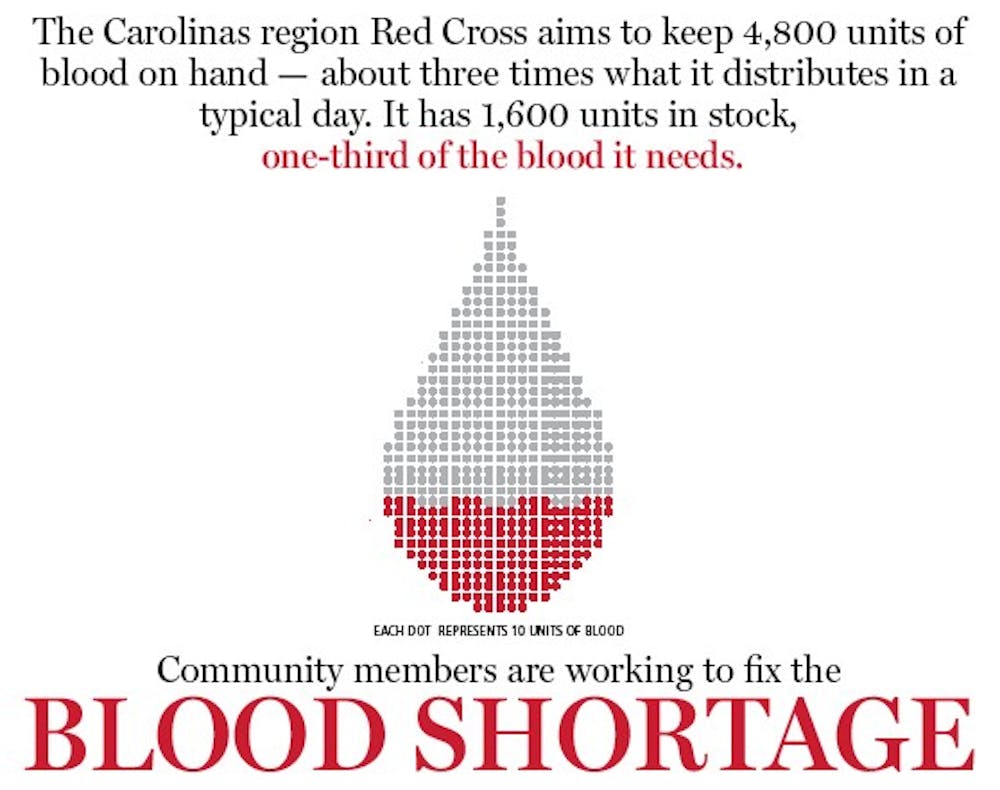Platelets are the portion of the blood that acts as a clotting factor.
Kelly Hogan, a biology lecturer, teaches an APPLES course on community donations of the cellular components of blood.
Students in the class learn about blood types, components and disorders while reaching out to students, faculty and the community.
“They all become my little mini-recruiters,” Hogan said. “We’re just trying to get people to become regular donors.”
Hogan knows the importance of donating blood because seven years ago, she was fighting for her life in UNC Hospitals due to massive hemorrhaging after giving birth to her son. Platelet donations saved Hogan’s life.
“Ever since then, it has sort of been my mission to get people more aware of the platelet donation process,” Hogan said. “If I educate a few people, they can educate a few more.”
UNC Hospitals transfuses about 6,100 blood units a month, said Tom Nish, supervisor of UNC blood donation.
Between 60 percent to 70 percent of donations at the UNC Hospitals Blood Center come from students, he said.
While the center has not experienced particularly low donations this winter, summers and breaks pose a challenge because of high dependence on student donations, he said.
“The physicians are being selective about where the products go,” Nish said.
“We sometimes have to get it from other sources.”
Hogan said she wishes she could donate, but her blood disorder makes it impossible. Instead, she decided to devote herself to spreading the word.
To get the day's news and headlines in your inbox each morning, sign up for our email newsletters.
Brooks said he donates five to six times a year, or every 60 days.
One of his most memorable donations occurred when Brooks was the in the army and one of his fellow soldiers had been injured and needed a blood transfusion.
Brooks, being blood type O-, was asked to donate.
“My blood went out from me, then it passed through a machine and into the patient,” he said.
His help didn’t end there. He once struck a deal with an Indiana hospital to reduce a friend’s medical bill depending on the amount of blood he could get people to donate.
He raised more than 100 pints.
“I think you can be creative in the way you donate,” he said.
Contact the City Editor at city@dailytarheel.com.



